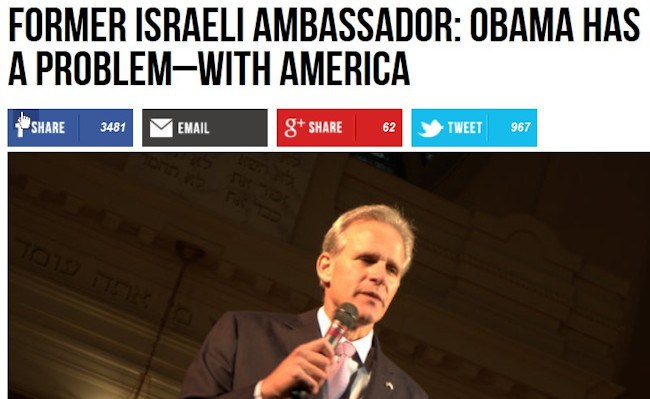The end of June deadline for a comprehensive deal between world powers and Iran over its contested nuclear program is fast closing, and the prospects of achieving a deal that will prevent an Islamic fundamentalist state from obtaining nuclear bombs are grim.
Iranian opposition leader Maryam Rajavi recently warned, “Western governments, the United States in particular, violated U.N. Security Council resolutions and offered major concessions, propelling the [Iranian] regime closer to the bomb.”
Rajavi was speaking at a convention held in Paris, in which tens of thousands of Iranian expatriates from across the globe and some 600 dignitaries from 69 countries attended to support regime change in Iran.
U.S. President Barack Obama, who spearheads an attempt at détente with Iran, argues his approach has effectively frozen Iran’s nuclear program and prevented the derailment of negotiations that will supposedly end the decade-long standoff with Iran over its illicit nuclear program.
The facts, though, favor Rajavi’s position, whose movement, the National Council of Resistance of Iran (NCRI), first revealed Iran’s secret nuclear activities in 2002.
Under the Geneva interim agreement, hammered in November 2013, the West effectively capitulated to the Iranian regime’s demand to continue enriching uranium, a vital element for obtaining nuclear bombs. It was revealed that a final agreement would allow Iran to keep 1,500 active centrifuges, where it was previously told to completely dismantle its nuclear program. It was also agreed that while the negotiations continued, Iran would receive a monthly infusion of $700 million, which it would obviously spend on developing ballistic missiles, sponsoring terrorism, and shoring up its security and censorship apparatus at home.
The Iranian regime grew bolder in its demands, and by the July 20, 2014 deadline, its Supreme Leader, Ayatollah Ali Khamenei, called for a tenfold increase of Iran’s enrichment capacity. The deadline was missed and the talks were extended until November 24, while serious warnings were issued that there would be no further extension to the talks.
Predictably, the Iranian regime did not heed those warnings and continued to intransigently ask for more. By November 24, it became evident that the second deadline would be missed as well, and Tehran had managed to force its counterparts to raise the enrichment capacity to over 4,000 centrifuges and extend the talks for another seven months.
In February 2015, the NCRI revealed a secret facility where Iran was developing a parallel nuclear program. But that too, did not prevent western negotiators from giving yet more concessions to the Iranian regime in the Lausanne framework agreement signed in early April. In addition to further raising its enrichment capacity, Iran was effectively exempted from coming clean on its past suspect activity and dismantling its 19,000 centrifuges. Tehran also got to continue research and development and keep the controversial Fordow facility, a highly fortified military compound that could be used to securely enrich uranium.
During this period, Iran continuously insisted that its nuclear program is aimed at peaceful purposes, a claim that was discredited by a revelation by the Iranian resistance pertaining to secret cooperation between Iran and North Korea over nuclear warheads and weapons technology. But fearing confrontation would derail the talks, the Obama administration tiptoed around Iran’s nefarious activities and only voiced concern.
Having found a taste for pushing the West for more concessions, Khamenei declared he would not allow the inspection of Iran’s military sites and the questioning of nuclear scientists. His remarks were quickly echoed by Iran’s top military and political officials. With less than two weeks remaining to the June 30 deadline, it remains unclear how the international community will keep tabs on the undisclosed aspects of Iran’s nuclear program.
What’s more, U.S. officials are already hinting that Obama intends to lift not just the nuclear-related sanctions, but others that had been established to punish Iran’s sponsoring of terrorism and long-range missile program.
This brief history clearly shows that the Iranian regime will either sign a deal that will keep its path open to obtaining nuclear bombs, or it will stall the talks and push for even more concessions. These series of events will trigger a disaster in the Middle East, which will surely propagate and possibly gain global proportions. A nuclear-armed Iran, a nuclear arms race, and further exacerbation of regional conflicts are the least that can be expected.
By then, apologists of rapprochement and appeasement toward Iran will probably have no other choice than to admit the total defeat of their doctrine. But it will be too little, too late.
If Iran is to be prevented from acquiring nuclear weapons, world powers must show they are ready to walk away from the talks and play hardball if Tehran does not comply with international norms. A rogue regime that does not represent its people and has time and again proved its enmity to the world must not be trusted with a single spinning centrifuge and must be forced to totally dismantle its nuclear infrastructure and be subject to snap inspections of its facilities anytime, anywhere.
In the words of Mrs. Rajavi: “If you do not want a nuclear-armed fundamentalist regime, stop appeasing it.”


Read more: http://www.americanthinker.com/articles/2015/06/obama_is_letting_iran_get_away_with_nuclear_bombs.html#ixzz3dYTTG1tP
Follow us: @AmericanThinker on Twitter | AmericanThinker on Facebook

No comments:
Post a Comment